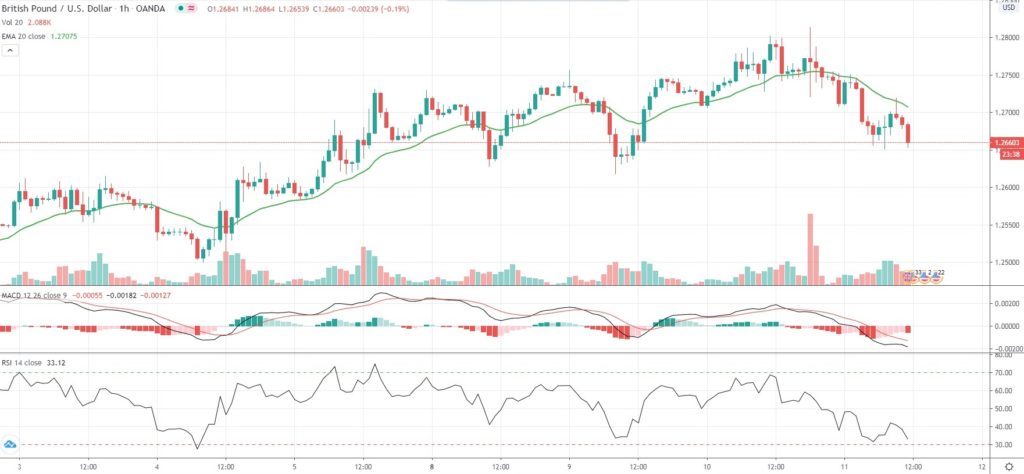Following a ten-day winning streak that pushed GBP/USD to fresh three-month highs, the pair gave back a portion of those gains on Thursday and fell below the 1.2700 mark, as the US Dollar regained its safe haven appeal following somber economic projections from the Federal Reserve. In the mean time, risks such as uncertainty surrounding Brexit continued weighing on the British currency.
The FOMC kept the target range for the federal funds rate intact between 0% and 0.25% at its policy meeting yesterday, as widely expected, and reiterated a commitment to use the full range of tools in support of the economy. However, the bank also indicated that borrowing costs would probably stay at levels close to zero until the end of 2022.
In addition, no measures to limit the surge in government bond yields were announced. Yet, Fed Chair Jerome Powell said during the press conference following the policy decision that there had been a discussion on yield curve control, but the effectiveness of such a measure was still an “open question.”
Fed policy makers now expect US economy to contract 6.5% this year, PCE inflation to decelerate to 0.8%, while the rate of unemployment to surge to 9.3%.
Meanwhile, during a forum in Brussels the EU’s Brexit negotiator Michel Barnier said that Britain would have to adjust its demands within the upcoming months, if it were to reach an agreement with the EU. Barnier pointed out that Britain was seeking a trading relationship with the EU that very much approached the one of an EU member.
“The truth is that in many areas (Britain) is demanding a lot more than Canada, Japan or many of our other (trade) partners,” Barnier said.
“In many areas it is looking to maintain the benefits of being a member state without the constraints”, while it is “looking to pick and choose the most attractive elements of the (EU) single market without the obligations.”
Top British officials are scheduled to meet Michel Barnier tomorrow, after the latest round of Brexit negotiations concluded with little progress. The EU and the UK must reach an agreement by the end of October, as per the terms of Britain’s exit from the bloc on January 31st.
As of 11:40 GMT on Thursday GBP/USD was retreating 0.67% to trade at 1.2662, after touching an intraday high of 1.2755 during early Asian session, or a lower high compared to Wednesday’s three-month peak. The major pair has dipped 0.10% so far this week, following last week’s biggest gain since late March.
In terms of economic calendar, at 12:30 GMT the US Labor Department will report on jobless claims. The number of people in the country, who filed for unemployment assistance for the first time during the business week ended June 5th, probably eased to 1,550,000, according to expectations, from 1,877,000 in the preceding week. The latter has been the lowest number of claims since mid-March. The total claims reported since March 21st rose to 42.6 million.
Bond Yield Spread
The spread between 2-year US and 2-year UK bond yields, which reflects the flow of funds in a short term, equaled 22.6 basis points (0.226%) as of 10:15 GMT on Thursday, down from 24.9 basis points on June 10th.
Daily Pivot Levels (traditional method of calculation)
Central Pivot – 1.2756
R1 – 1.2805
R2 – 1.2862
R3 – 1.2911
R4 – 1.2961
S1 – 1.2698
S2 – 1.2649
S3 – 1.2592
S4 – 1.2534






